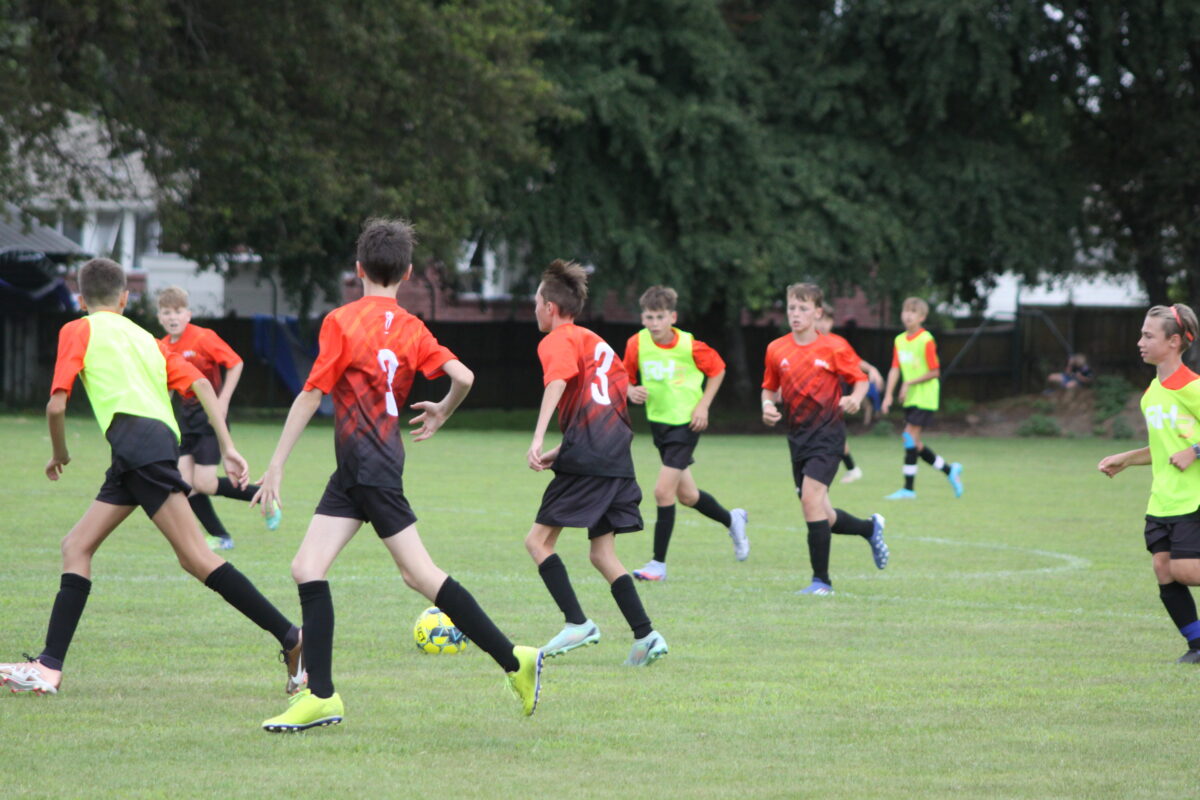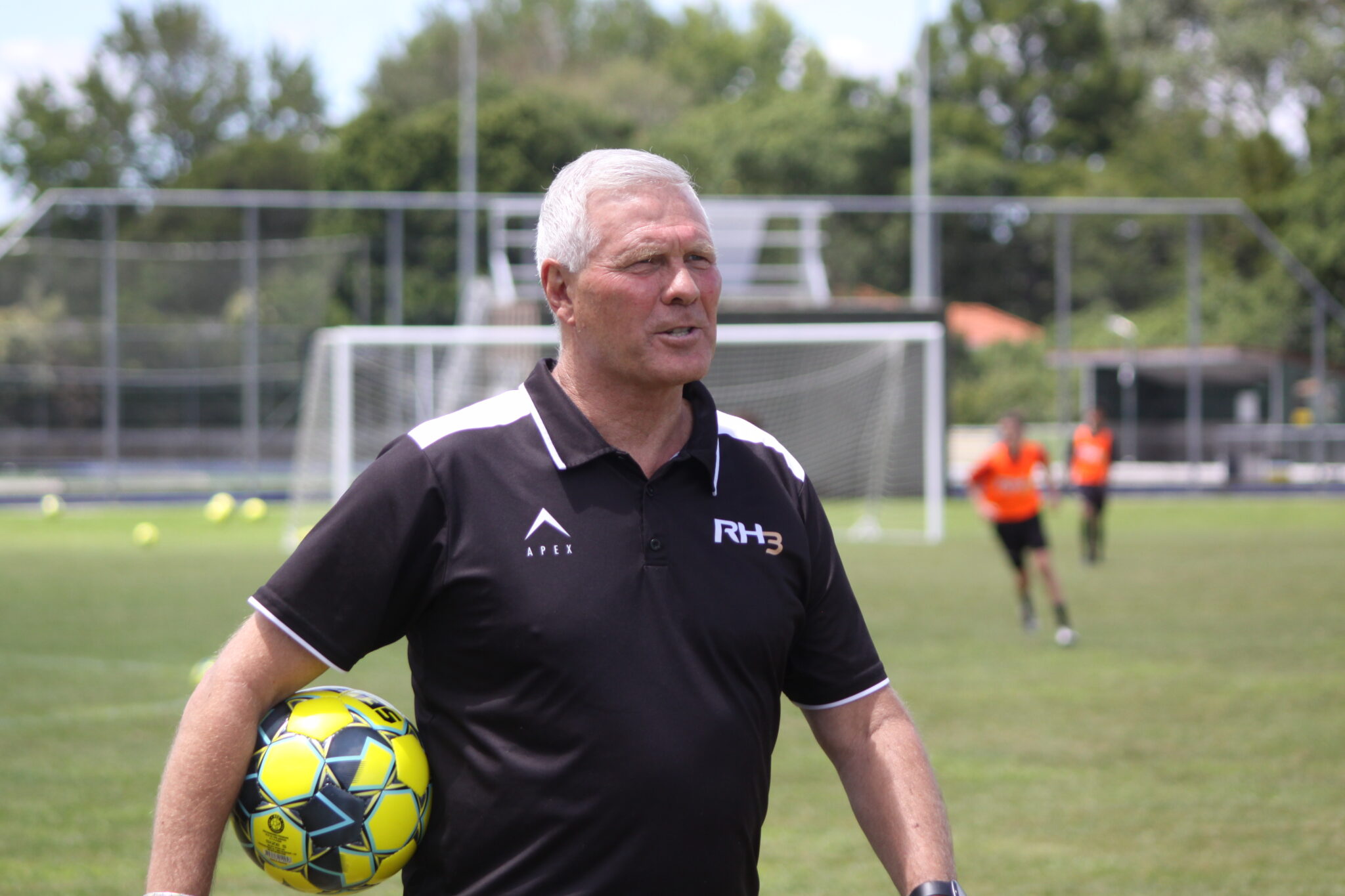The rise of football

A growing demand
If you have a high school-aged child, there’s a good chance you spend your winter Saturday mornings on the side of a football field, cheering them on. Popularity of the beautiful game is on the rise in New Zealand, as it becomes the sport of choice among a growing number of young people.
With the hugely successful FIFA Women’s World Cup just behind us, football in NZ is expected to become more popular than ever before. The high profile of football here and overseas, accessibility to the game, and investment at young levels are just some of the reasons the sport is finding favour among kids.
From strength to strength
According to the New Zealand Secondary School Sports Council’s 2022 census, 20,464 high school students played football at high school level, making it the fifth most popular code in Aotearoa at that level. This puts football ahead of sports like hockey, athletics, cricket, and rowing for the same period.
Netball remains the most popular high school sport overall, with 25,933 participants, followed by basketball (25,595), rugby (24,625) and volleyball (23,391), taking up the other top spots ahead of football.
Internationally, football remains one of the most popular sports in the world, with an estimated 3.5 billion fans and 250 million players across 200 countries – led by Brazil, Germany, Italy, Argentina and France. Whether you’re a casual spectator, a player or yet to be converted, this exciting sport has gained a huge following.

Impact of the World Cup
With the FIFA Women’s World Cup recently drawing to a close, it’s too soon to know the full impact this international event will have on football here, but it will undoubtedly be positive. Crowds of fans flocked to stadiums around NZ to watch the biggest women’s sporting event in the world, which historically featured 32 teams.
The Government invested about $55 million in the event and surrounding activity, including $19 million for upgrades to 32 stadiums and training sites earmarked for the tournament. The upgrades will be an ongoing legacy for the communities and all sporting codes that use the facilities.
Another $10 million was invested in initiatives off the back of the event, including school holiday programmes for girls, all of which are expected to have lasting benefits to the game. The biggest impact however, may be the inspiration the World Cup provided to young fans and players. The quality of football seen during the tournament is something the country has never seen before and is likely to cause an explosion of interest in women’s football.

Investing in young players
Ricki Herbert knows more than most about the benefits of football to young players. Herbert runs a football academy that provides coaching to kids at all levels from ages four to 17. Coming from a supportive, sporting family, Herbert took up football aged four and at 62 he remains just as passionate about the game he loves and which has given him so much.
Herbert is a former NZ and international professional footballer, who played 84 games for NZ, including the 1982 World Cup in Spain. He went on to become head coach for the undefeated 2010 World Cup team in South Africa. Since then he has coached for a number of professional clubs. In 2013 he started the Ricki Herbert Football Academy to give back to the game by offering opportunities to young players. “I wanted to present something like that and have something that had some real depth and meaning.”
The academy is now across several parts of the country, including branches in Auckland, the Kapiti Coast, Whakatane, Cambridge, Matamata, Taupo, Taumarunui, Warkworth and Wellington. Reaching areas that don’t have the mainstream opportunities found in larger centres has been a big part of their focus, says Herbert. “I’ve been very keen to be reaching out because there’s going to be talent – there’s always talent in those surrounding areas.”
A girl who recently took part in a development programme in Taumaunui showed huge potential. She’s since moved to give her better access to the game, and is playing in an under 14 team in Cambridge. Another young player, Liberato Cacace, who trained with the academy showed technical talent early on and always had a “burning passion” for football. He went on to play for Wellington Phoenix and now plays for the All Whites.
The academy isn’t just for elite players – there’s something for all kids who want to learn to play football. Most importantly, Herbert wants the kids to enjoy the game and have fun. “That’s a priority for me, that they go away with a smile on their face.”For those who do want to advance their football careers, the academy provides mentorship from professional coaches, opportunities to develop their talent and support to find a path that best suits their ability and goals.

Growing demand
Demand is always strong for their programmes, but recently numbers have increased even more than usual, says Herbert. ‘‘We just sense that the game in general is being seen favourably by parents and more children are coming through. For us we’ve certainly had growth.” There are so many draw-cards to football, says Herbert. It engages the whole body, has transferable skills, it’s easy for parents to access, there’s progression of levels and talent and opportunities to connect with other children. “The one thing about the sport is it probably sits reasonably prominently in the majority of countries around the world. Because it is such a global sport it has that attraction to keep driving numbers.”
The future of football
Here in NZ financial investment and development of players at younger levels is “crucially important” in providing opportunities for children to learn and grow in the sport, says Herbert. That can range from giving kids the chance to kick a football around in an organised space with positive people, to more meaningful opportunities for kids who want to be challenged further. Football NZ’s new Fantails programme, aimed at attracting new female players aged 4-12, is one example of the way football is evolving and investment in the next generation.
Herbert hopes NZ continues to produce and nurture talented players. “Geographically where we are, I think there’s always going to be that drive for players to go offshore at some point to further be educated and be challenged.” Our focus should be to grow the talent we have, drive aspiration, and continue to lift the bar, as we’re doing. Seeing the success of our best players will continue to motivate the younger ones, says Herbert. “We’re here to help the next generation.” There’s no doubt, the future of football looks bright.